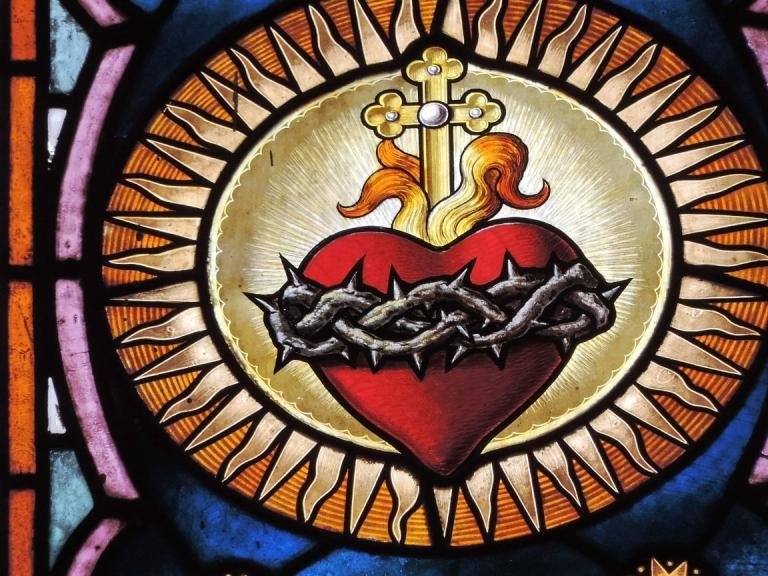Many individuals misconstrue the Christian religion and its educating of salvation as a result of they perceive it solely with a legalistic mindset. They conceive of sin as they do crimes, that’s, sin is just some violation of a legislation which God put in place. How these legal guidelines are established isn’t clear, particularly because it appears every legislation is promulgated for various causes. What is obvious is that we don’t have to know God’s causes: the legislation, as soon as it’s established, should not be violated, as any such violation requires us not solely to be punished, however to make amends for what we’ve got executed. That’s, God is owed reparations. The issue is that what God is owed is greater than we are able to ever repay, so that each sin can and may result in us paying it off for eternity, that’s, it results in everlasting perdition. Nonetheless, God doesn’t need us to be damned, so God discovered a strategy to get past that decree, through the use of, because it had been, loopholes across the legislation. These loopholes permit Jesus, the God-man, to pay again to God what we owe, however provided that we let him achieve this. It’s all so legalistic, and although there appears to be a logic to the insanity, and with it, even, some components of fact concerned, it’s all a legalistic distortion and misapprehension of the higher fact.
The extra we think about what this type of understanding implies, the extra we should always query it. Why would God want some kind of legalistic loophole if God doesn’t need us to endure everlasting perdition? Shouldn’t God, who made the legislation, additionally have the ability to take away it and its penalties? Is the legislation extra highly effective than God that God must discover a loophole to do what God needs to do? When Christianity is whittled all the way down to a system of utmost legalistic justice, God’s mercy and charm, God’s love, will get misplaced. Such a legalistic presentation of salvation, whereas it would assist function a fundamental analogy for these studying the religion, in the end should give strategy to a greater understanding of God, one which really embraces the truth that God is love. Salvation have to be understood because the work of affection. The incarnation is the revelation of God’s love. The incarnation shouldn’t be seen as God’s try to discover a loophole to take care of sin. Moderately, it needs to be seen as God’s intention from the start; God loves creation and desires creation to take part in and expertise the divine life for itself. Sin interfered with God’s plan for creation, and there needed to be a way for it to be overcome, and that may be and is included within the work of the incarnation, however the principle level of the incarnation is to ascertain an actual hyperlink between creator and creation in order that creation has a means of taking part within the divine life: And so, Christos Yannaras affords a greater means of understanding salvation, “Man’s salvation, his participation in everlasting life, isn’t a authorized occasion; it’s a participation in God’s love which provides substance to life.” [1]
Salvation, then, is about our reference to everlasting life, which is the lifetime of God, the lifetime of the God who’s love. Sin is finest understood because the violation of the best and truest legislation, the legislation of affection; insofar as we reject the best way of affection, our connection to everlasting life is affected, for everlasting life is supposed to be a life in union with the God who’s love. Our refusal to like can be a refusal of accepting God’s divine love for us and all of the graces which circulate from it. What we expertise will he mediated by that unlove, and as unlove has no grace, we are going to discover ourselves experiencing increasingly more ache and sorrow. However as a result of God is love, God doesn’t need our unlove to have the final say. God continues to supply like to all, giving everybody the possibility to show away from sin, from unlove, and expertise the embrace of divine love. What we’ve got executed with and thru our unlove can and can harm us and others, and so it’ll must be handled, that’s atoned, however such atonement shouldn’t be seen by means of the mantle of legalism and legal guidelines, however by means of love and the way love can assist undue the violations of affection, beginning with giving forgiveness to those that ask for it.
The extra we interact the great by looking for out and embracing some specific good, the extra we discover ourselves aimed in direction of love as a result of goodness and love are one. The extra will to do good, the extra God will take our good will and use it to assist us with the love contained in that goodness. That’s, God will pour out graces in that love and use it to strengthen and reinforce us in order that we are able to proceed in our pursuit of that which is nice. “When he notices good will making an look in us, without delay he enlightens and encourages it and spurs it on to salvation, giving enhance to what he himself planted and noticed come up from our personal efforts. “[2] That’s, God will take each good present in us and love us for it. That love, then, will present grace, in order that those that embrace it’ll have what they should flip themselves round from ill-will and unlove and in direction of love, after which higher and higher love, till finally, in and thru that love, they discover themselves united with God and experiencing the divine life for themselves. God is constantly providing divine like to everybody, giving everybody numerous methods to embrace the trail of affection, and thru it, to search out salvation:
Due to this fact the grace of Christ is at hand on daily basis. It calls out and says to everybody with out exception, ‘Come to me, all you who labor and are burdened, and I will provide you with relaxation,’ as a result of he wishes ‘all to be saved and to come back to the data of the reality.’ But when he doesn’t name all universally however a couple of, it follows that not all are burdened by authentic sin and by current sin and that these phrases aren’t true: ‘All have sinned and fall in need of the glory of God.’ Nor would it not be believed that ‘demise has handed by means of all males.’ And so true is it that every one who perish achieve this opposite to God’s will that God is claimed to not have made demise itself, as Scripture testifies: ‘God didn’t make demise, nor does he rejoice within the lack of the residing.’ [3]
God doesn’t need that anybody ought to perish, that’s, endure everlasting perdition (cf. 2 Prt. 3:9). God loves everybody. God embraces everybody in and thru that love. That embrace, certainly, is what led to the incarnation. God the incarnation is the final word expression of that love. It’s God uniting with humanity in order that in and thru humanity all creation can discover itself one with God. For, within the incarnation, within the assumption of human nature, God the Son assumed a created nature and so shares a nature with the remainder of creation. The hypostatic union doesn’t change creation into one thing it’s not, nevertheless it permits all inside it to search out its correct place in everlasting life, within the kingdom of God. Divine love constructed a bridge between creation and the divine nature by means of the particular person of the Logos, God the Son. The injuries which unlove, sin, has prompted to creation will be healed, although as a result of those that have sinned can’t do all of it by themselves, God has seen it becoming to heal creation from inside, to partake of it, which God does within the particular person of God the Son within the incarnation. Salvation isn’t established by means of some kind of authorized motion (or fiction), however by means of an act of affection. It’s love which grants freedom. It’s love which permits creation to make of itself as it’ll. It’s love which has God to tackle what creation created and assume it within the particular person of God the Son. It’s love, not legalism, which our religion facilities itself upon.
[1] Christos Yannaras, The Freedom of Morality. Trans. Elizabeth Briere (Crestwood, NY: St. Vladimir’s Seminary Press, 1984), 175.
[2] John Cassian, The Conferences. Trans. Boniface Ramsey, OP (New York: Newman Press, 1997), 474 [Thirteenth Conference; Chaeremon].
[3] John Cassian, The Conferences, 472-3 [Thirteenth Conference: Abba Chaeremon].
Keep in contact! Like A Little Little bit of Nothing on Fb.
If you happen to preferred what you learn, please think about sharing it along with your family and friends!
N.B.: Whereas I learn feedback to average them, I not often reply to them. If I don’t reply to your remark instantly, don’t assume I’m unthankful for it. I admire it. However I need readers to be at liberty to ask questions, and hopefully, dialogue with one another. I’ve shared what I needed to say, although some responses will get a quick reply by me, or, if I discover it attention-grabbing and one thing I can interact absolutely, as the muse for an additional submit. I’ve had many posts impressed or improved upon because of my readers.



